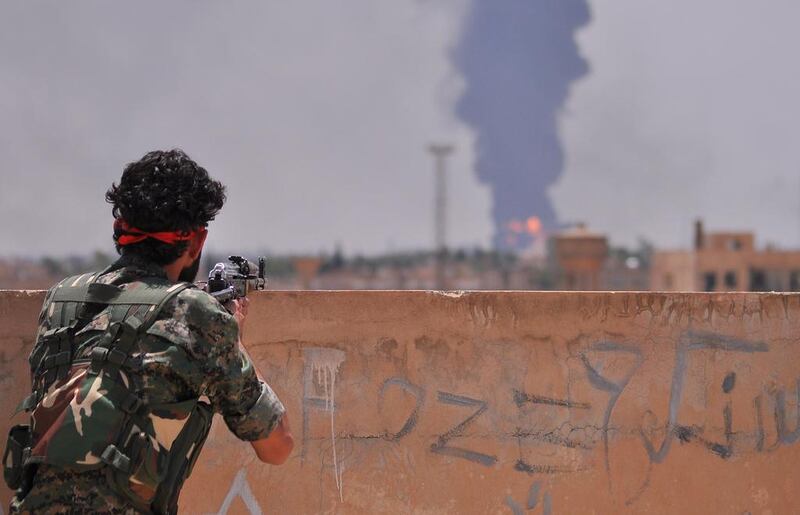Syria’s impending implosion and the consequent creation of independent statelets appears unavoidable as the civil war reaches a stalemate, according to some commentators. Despite the intervention of various foreign parties and the overlapping policies of regional players, Syria looks set to implode as a sovereign state.
Writing in the pan-Arab daily Asharq Al Awsat, Fayez Sarah observed that “there is talk in political and media circles about the division of Syria as one of the ways to end the civil war. Such a solution would need to involve the Assad regime, extremist groups such as ISIL, as well as regional and international forces that have all contributed in precipitating talks about the division of Syria as a solution to the conflict.
“The discussion concerning divisions begins from two key points,” Sarah wrote. “The first tract looks to previous attempts to divide Syria in the modern period, starting from the French mandate that would attempt to keep Syria as one state with the possibility of autonomous areas.
“The second starting point is based on the concept of secession. This would require the formation of several entities or statelets.
“The first statelet would be controlled by the Free Syrian Army in the south.
“The second entity could be made up of territories controlled by the Assad regime, extending from Damascus, in addition to Tartus and Latakia on the coast.
“The third entity extends between Idlib and Aleppo under the control of Islamist opposition forces.
“The fourth entity is currently under the control of ISIL and extends across the eastern countryside, in addition to the Deir Al Zor, Raqqa and Hasaka.
“The fifth entity would be controlled by the Kurds, allied with the FSA forces and would include of the provinces of Raqqa and Hasaka,” Sarah explained.
The writer went on to say that these arguments were more of a warning than a pressing reality because the situation remains in a state of flux.
Political and military imbalances as they stand right now are subject to rapid changes, especially in light of the shifting positions of foreign powers on the Syrian issue. This is not to mention the absence of strong international will to solve the Syrian crisis.
The main external impediments to secession in Syria remain the strong and efficient positions of regional players, mainly Turkey, Saudi Arabia and Egypt according to Sarah.
“We should not ignore the risk of secession in light of developments on the ground and possible changes that may happen in the blink of an eye.
“No one ever imagined that Syria would turn into a hotbed of extremism and terrorism, a thought that used to belong to the world of fiction”, he concluded.
In the pan-Arab Al Hayat, George Semaan noted that the fall of the pivotal city of Daraa to the southern front will require a speedy political settlement among stakeholders in the Syrian crisis.
“The arrival of the opposition to the outskirts of the capital may finally convince the regime to seriously consider a political settlement.
“Russia is not far from the idea of abandoning Bashar Al Assad, while others are comfortable with having him remain through the transitional phase. Such a settlement would preserve what remains of the state and safeguard all minorities and their future role.”
If no solution is reached, division is likely. In light of these realities and given the roles that Turkey and Iran are playing in the Syrian conflict, the Levant region will be carved up between surrounding regional powers, from Turkey to Iran Jordan and Israel. This would be a miserable fate for a country that once was a key regional player, according to Semaan.
* Translated by Carla Mirza
cmirza@thenational.ae





